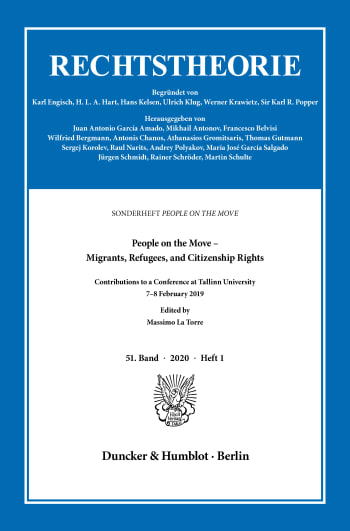Angry Times: Populism and Democracy Discontent
Edited by Indrek Grauberg, Bart van Klink and Massimo La Torre
We are living in angry times. To a growing extent, people are dissatisfied with many things – the government, the courts, the mainstream press, their lives in general – and even resort to violent means to make themselves heard. A few years ago, the Indian essayist and novelist Pankay Mishra characterized our era as an “age of anger”. Referring to the eruption of savage violence in recent years, as manifested in for instance terrorist attacks, conventional wars in Ukraine and the Middle East and various other (economic, financial, cyber and information) wars, he stated: “Future historians may well see such uncoordinated mayhem as commencing the third – and the longest and strangest – of all world wars: one that approximates, in its ubiquity, a global civil war.” Populism thrives in this situation of permanent crisis and chaos, using the public discontent to acquire and extend power. Since the end of the 20th century, populist discourse has spread itself rapidly in the political arena and in society at large. Although populist movements – either left-wing or right-wing – have always been present in history, in the Western world they have gained increasing support. Populist parties have succeeded to mobilize a more significant amount of voters in most European countries than ever before. Populist politicians have thus become a key factor in contemporary politics, either by being in power themselves or by influencing the public debate and setting the political agenda with issues such as safety, immigration policy and national identity. These were the issues ruminated and discussed at an international conference held at the University of Tallinn in February 2020. And this publication consists of several, important and stimulating papers given on such occasion by a group of highly distinguished scholars.
The Quest for Rights Ideal and Normative Dimensions
Edited by Massimo La Torre, Leone Niglia and Mart Susi

This discerning book explores the concept of human and fundamental rights, originating from the seminal work by the German legal scholar and constitutional lawyer Robert Alexy. Recognising the growing challenges to the idea of the universality of Human Rights, expert scholars consider time-independent conceptual questions which inevitably lie at the heart of any contemporary human rights discourse: What is the justification of balancing and/or trading off fundamental rights against other rights and collective goods? And are there utilitarian considerations that can limit the normative force of human rights?
People on the Move – Migrants, Refugees, and Citizenship Rights (RT 1/2020)
Edited by Massimo La Torre

»People on the Move. Migrants, Refugees, and Citizenship Rights«: This special issue collects papers given at a conference convened at the University of Tallinn, Estonia, in February 2019 to discuss on migration and citizenship rights. »People are on the move« – this is an evidence from which the discussion took start. A mass of destitute people migrate both for economic and political reasons from the poor South of the world to the rich North. The question then is how to deal with this epochal movement of people and with their needs and rights. Is there a right for a migrant to have access to the country she will enter to? Is citizenship necessarily exclusive? Could belonging be conceived as a porose condition?
Ratio Juris Journal Volume 33, Issue 1
Founded by Enrico Pattaro
In October 2018 at the School of Governance, Law and Society of the Tallinn University, Estonia, a group a distinguished scholars met to discuss Professor Robert Alexy’s philosophy of law. This doctrine was there challenged especially as regards two of its basic tenets. On the one side, his view of an ideal dimension of law was critically considered from diverse perspectives, in particular by putting in question its analytical and empirical fruitfulness. An ideal dimension – it was claimed — is more than just given by the morality of law, and its analytical framework might be doubted to be just consisting in a dualistic alternative, as the one rendered through the choice between facts and norms. On the other side, the core of Alexy’s concept of law was put under critical scrutiny, that is, law’s claim to correctness, which is meant to offer the searched for bridge connecting law and morality in a necessary, conceptual way. Correctness — it was argued by critics –is not yet morality, and not every legal system could and would claim to offer a general ethical cover to its provisions. A final attack was then directed against Alexy’s theory of legal principles as optimization commands. As a matter of fact, Alexy himself has abandoned the view according to which optimization commands could be applied by balancing, and has consequently revised his previous notion of principles. These are now seen as commands to be optimized rather that commands to optimize, and indeed as an “ideal ought” that is open to contradictory performances. This revision however renders the distinction between rules and principles, which is maintained, a too baroque construction, and its novel configuration might be considered – it is argued – as not much more than an ad hoc reaction to fundamental criticism. Professor Alexy in his reply has tried to parry such blows to his jurisprudential system. This debate touched some of the most central issues of philosophy of law and enrichingly contributed to the controversy on the concept of law and the essentials of legal reasoning.